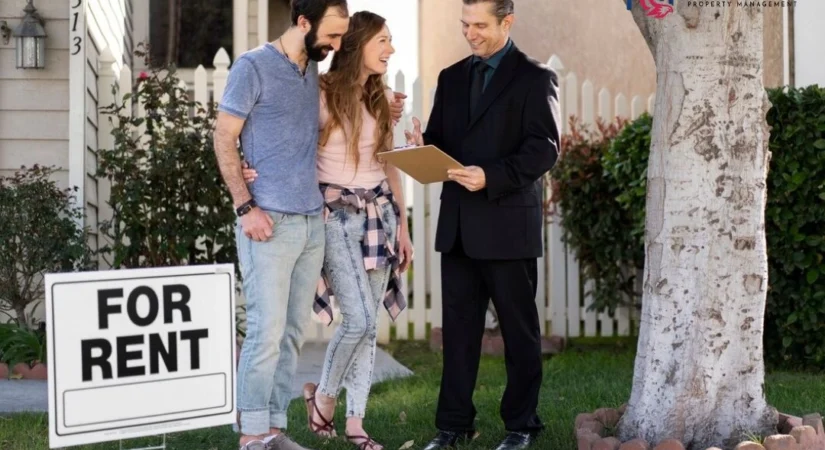As a homeowner in Detroit, Michigan, you might wonder, can an owner show a house while renting? This is a common concern. Showing the property without proper notice or valid reasons can lead to legal trouble, and damage to your relationship with renters.
An owner can show the house, but only in certain valid circumstances, and with proper notice. Understanding the rules and respecting your residents’ rights can help avoid problems and keep things running smoothly.
In this blog, we’ll explain when you can legally show your rented property and how to do it without hassle. Keep reading for all the details.
Can A Owner Legally Show House While Renting?
Homeowners can show a house while renting, but only under specific conditions. If the lease is about to end or the resident plans to move out, the owner can arrange showings for prospective renters. However, maintaining the resident’s privacy is key.
The resident’s privacy must be protected by giving proper notice. These legal guidelines allow homeowners to show the property respectfully and lawfully.
Understanding Resident’s Privacy Rights
As a homeowner, it’s crucial to ensure the resident’s privacy. While you may need access to the property for certain reasons, these rights protect residents from unnecessary disturbances. Respecting these rights encourages good renter relationships and prevents legal issues.
Homeowner’s Entry
A homeowner can enter a rented property under specific cases. However, they must provide proper notice, typically 24 to 48 hours before showing. The entry should be during reasonable hours and not disrupt the resident’s peaceful living environment. Respecting these guidelines helps maintain a good owner-resident relationship.
Third Party’s Entry
If a homeowner allows third parties, such as contractors or real estate agents, to enter the rental property, they must respect the resident’s privacy. Like the homeowner, third parties must provide proper notice and enter only for valid reasons like repairs or property showings. Residents must always be informed ahead of time to prevent unnecessary disturbances.
Prohibition Against Harassment
Harassment includes excessive or unnecessary entry into the rental property, or attempting to intimidate residents into leaving. The law prohibits owners from making frequent, unwarranted visits or using entry as control. Renters have the right to peaceful enjoyment of their home, and violating this right can result in legal actions. It’s essential to respect their privacy at all times.
Homeowner Rights: Entering a Property While Occupied
As a homeowner, entering your rented property is your legal right following the Michigan Owner and Resident Relationships Act (MCL 554.601). However, following the proper procedure is important to avoid complications.
Showing the Property to Prospective Renters or Buyers
Homeowners can show the property to potential renters or buyers, especially when the current resident’s lease is about to end or they plan to move.
Conducting Inspections
They are allowed to perform routine inspections, such as checking for damage or assessing the condition of the property. These inspections should take place at reasonable hours and focus on the property’s condition rather than violating the resident’s privacy.
Performing Repairs and Maintenance
Householders have the right to enter the property to make necessary repairs, such as fixing plumbing or electrical issues. It’s important to provide proper notice to the residents and ensure the repairs are done timely. This helps maintain the property’s condition without disrupting the resident’s life.
Convenient Way To Show Your House While Occupied

Showing a rented home can be challenging, but with the right approach, it can go smoothly. Ameri Home suggests some convenient ways to get the work done without complications.
Ask for an Appropriate Time
Try to convince current residents by asking when they may co-operate. It shows that you respect their schedule and helps prevent any disruptions. Flexibility is key to maintaining a positive relationship with your residents and completing the process smoothly.
Notify Current Residents
Always notify your residents well in advance about any showings. It helps residents to prepare and ensures their privacy during the process.
Offer to Pay for a Cleaning Service
Offering the expenses of cleaning service can be a good mindset for maintaining positive relations with your residents. It helps present the home well to potential buyers or renters. A clean home is more attractive and makes the showing experience more pleasant.
Don’t Host an Open House
Instead of holding an open house, schedule private showings. This approach reduces disruption, allows for better control, and ensures a more focused experience for prospective buyers or renters. It also respects your resident’s privacy and avoids overcrowding.
What If The Resident Continually Refuses To Show The Property
It can be frustrating when a resident refuses to allow showings of your property. However, it’s important to handle this situation carefully and professionally. Here are some strategies to consider when facing such a challenge.
Attempt to Negotiate
If your resident refuses to allow showings, try to negotiate a mutually agreeable time. Discuss their concerns and see if a compromise can be made. Flexibility in time or offering incentives might help smooth things over and create a more cooperative environment.
Seek Legal Advice
If negotiation doesn’t work, it may be time to seek legal advice. A property management expert or attorney can help you understand your rights and the proper steps to take. It ensures following the law and handling the situation professionally without violating resident rights.
Documentation Of The Refusals
It’s crucial to document any refusals or communication about showings. Keep records of any requests made and the resident’s responses. This documentation could be useful if the situation escalates and legal action becomes necessary. Proper documentation ensures your proof of the attempts made to resolve the issue.
Risks of Showing Occupied House
Showing an occupied house can present challenges that may impact its appeal and raise legal concerns. Here are some key factors to consider when showing an occupied house:
Occupied Properties May Look Less Appealing
An occupied property may not have the same polished look as a vacant one. Personal items, clutter, and the general lifestyle of the occupants can make it harder for potential buyers to envision themselves living there. It can result in a less favorable impression, potentially reducing interest in the home.
Liability
When showing an occupied home, homeowners are responsible for the safety. If any accidents or damages occur, the homeowner could be held liable. As a homeowner, you should take necessary precautions to ensure the property is safe for visitors.
Conclusion
Showing a pre-occupied house can be more complicated than it seems. Homeowners must honor privacy, provide proper notice, and ensure compliance with local laws. Balancing these responsibilities while maintaining a positive relationship with your residents can be tricky, especially when dealing with time-sensitive situations or potential refusals to show the property.
If this process feels complicated or you’re unsure about the legal aspects, our property managers can simplify things for you. We can handle all the details, from scheduling viewings to managing resident communications, ensuring a hassle-free experience.
Frequently Asked Questions
Can An owner show the rental property without the resident’s permission?
No, homeowners cannot show a rental property without proper notice and the resident’s consent. In Michigan, the owner should give residents at least 24 hours written notice before entering.
How often can An Owner show pre-occupied property?
The frequency of property showings should be reasonable and agreed upon with your resident. While you have the right to show the property to prospective buyers or renters, it’s essential to avoid harassment. Generally, a few times a month is fair, but the exact number will depend on your lease agreement and state laws. Always communicate clearly with your residents to maintain a good relationship.
What if my resident refuses to let me show the property?
If your resident refuses to allow showings, try negotiating to find a compromise. Respect their reasons and be flexible with timing. If a resolution can’t be reached, you may need to seek legal advice to understand your rights and potential next steps. Always document refusals to protect yourself legally.



